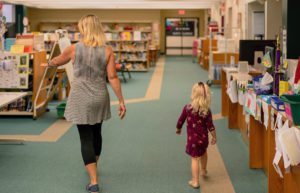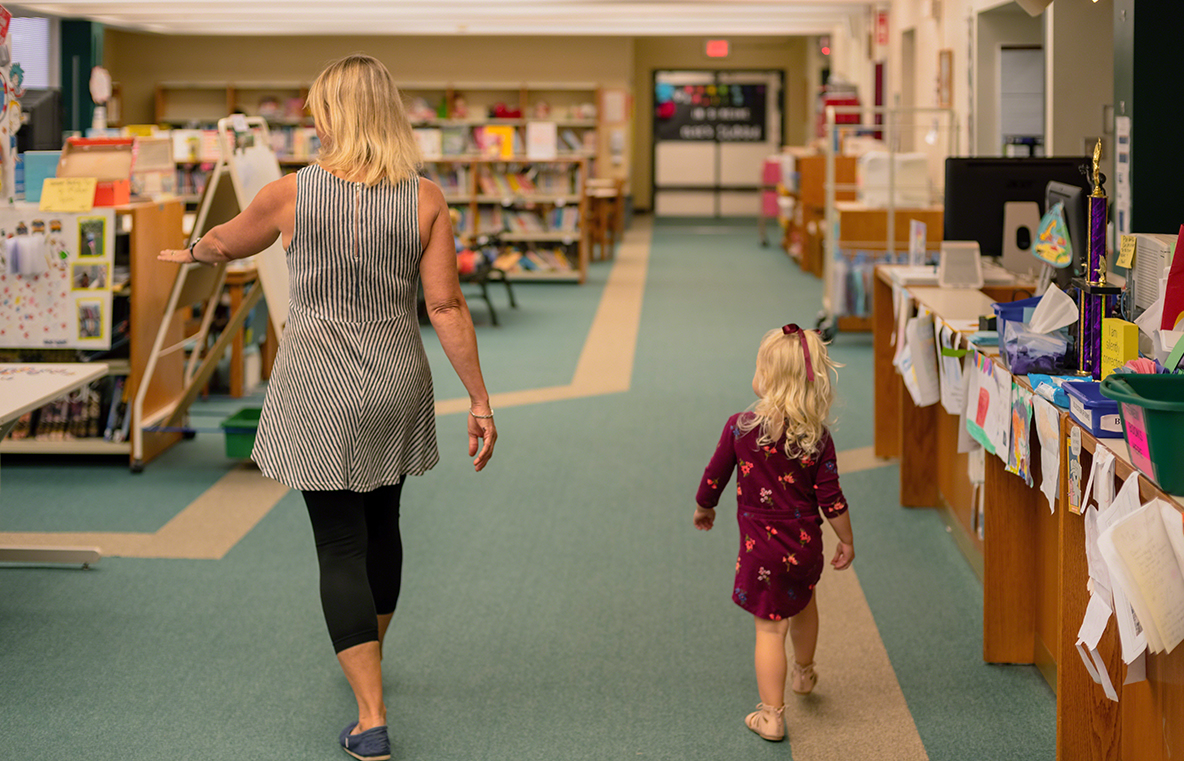

Almost half a million children are in the foster care system in the United States. Fostering is one way to provide safety and stability for them as they wait to be placed with a permanent family through adoption. As such, becoming a foster parent can be rewarding for you and the child as you help them develop emotionally, physically, and socially. However, the Children’s Bureau reports that children in foster care are often victims of abuse and trauma and cannot remain safely in their homes. Consequently, this can create a challenge as a child who has faced abuse needs extra attention as they recover from the trauma they experienced.
This article will help you learn the basics of fostering a child affected by abuse and offer tips on how to work through some of the situations that come with this type of care:
1. Be patient
Patience is essential for any parenting situation, but even more so when fostering a child who has experienced the trauma of abuse. A study by the Children and Youth Services Review revealed that foster children are more likely to develop problems in their social-emotional functioning. This can manifest through physical aggression, depression, or lack of impulse control.
These behaviors can be frustrating for foster parents, but it’s crucial to remain kind and understanding as they work through their experiences and emotions. You can do this by practicing positive reinforcement and actively listening to their needs without coddling.
2. Provide therapy
Therapy can be an important part of the healing process. There are plenty of options for therapy, but one of the most common is grief counseling. An article on grief counseling by Maryville University explains that it can be a way for children to understand loss. It can help them cope with the complex emotions that can arise in the aftermath of trauma, including the permanent loss of their biological family and daily routines. Counseling techniques such as play and art help children understand and work through the complicated and confusing emotions they may feel as they transition to their new lives.
It is important to note that the methods most appropriate for a particular child will depend on various factors, including the child’s developmental level. Because of this, it is important to work with a mental health professional to determine the best course of treatment. Each child is assessed for their mental health needs upon placement at Trinity Youth Services, is assigned a team, and the youth is encouraged to create goals for their progress.
3. Establish a routine
A predictable routine can give children a sense of structure and stability and help them feel more in control of their environment. Routines help them feel safe as they settle into their new environment because they know what they can expect to happen throughout their day.
Although establishing routines can be tricky with busy schedules, it’s vital to remember that things like sleep, exercise, and meals are all crucial to their adjustment period. To start a routine, you can establish rules regarding meals and snacks, create a bedtime schedule, and plan meals for the week together.
4. Take care of yourself
When you foster a child who has been affected by abuse, it’s important to remember that it’s not your job to fix them. Your job is to give them a safe space and provide them with love and understanding so they can begin healing. As you do so, you also need to remember that you have limits and needs of your own.
Fostering a trauma-affected child can be emotionally and physically demanding. A study published by the National Library of Medicine notes that foster parents experience heightened parenting stress and a lack of emotional support. To this end, consider setting boundaries, finding help from other foster parents or therapists, and taking time for self-care.
Abusive situations can be incredibly traumatic for children in foster care. With empathy, compassion, and support, these children can heal and thrive in your home.
Anna Foster is a freelance writer specializing in education and childcare. She is an advocate for fostering and adoption. In her spare time, she volunteers for her local shelter and other charitable causes.


“Courage” and “encourage” are related words stemming from the French word encoragier, from en- “to make or put in”, and coeur- which means heart. The basic premise of the word “encourage” is to instill confidence and hope (to give heart) to have courage is to be confident, brave or bold (to have heart). Both are very important in the work we do at Trinity on a daily basis.
I have never thought of myself as a particularly courageous person. As a child (and even now to a large degree), I would describe myself as shy. I have shared in previous lessons, that I was raised in an abusive household. My mother had undiagnosed mental health issues and self-medicated with drugs and alcohol. She suffered the trauma of abandonment when her mother gave her and her four siblings up for adoption and she never got over the pain and sadness of that event or the feeling that she was not worthy of her own mother’s love. Her trauma manifested itself in adulthood by lashing out at her own children; physically, emotionally and verbally and continuing the cycle of generational trauma. Tell any child they are stupid, ugly and worthless often enough and they will believe it. I know I did.
I was fortunate enough to have a second-grade teacher who saw something in the anxious, withdrawn little girl who often came to school with dirty clothes and matted hair. She saw that I was curious, imaginative and eager to please. She made sure I had access to opportunities that I could not or would not pursue on my own. She made sure I was included in activities and that I was picked for teams, which helped me gain confidence and created the foundation for friendships. She sent me to wash my hands and face and to brush my hair on days when I arrived at school in disarray. Her constant reinforcement made me more self-aware and helped me gain a sense of responsibility for myself. She encouraged me academically and called on me often in class, which pushed me to study and to always be prepared. She was tough. She did not coddle me or favor me. She did not step in to protect me from my mother’s abuse, but she taught me that my situation at home did not define who I was, and she gave me the knowledge, skills and tools to succeed. When I was promoted to third grade, she hand-picked my new teacher and had her continue to encourage my growth; academically and as a person. This happened each year, with each teacher until I finished elementary school.
By the time I entered Junior High and then High School, I was a different person. I still struggled at home, but saw school as my escape, literally and figuratively. I joined clubs and tried out for performing arts and got involved in anything that would keep me on campus before school, after school or on weekends. I had to overcome my insecurities and anxieties every time I sought an opportunity. I still heard my mother’s voice in my head, telling me I would never amount to anything, but I also heard the voices of those who had encouraged me to try. Courage was not something I felt on the inside. Rather, it was the armor I put on in order to survive the present and prepare for the future. My Senior year I was in the National honor Society, sang a solo in Madrigals, had the lead in the Spring theatre production, wrote for the school newspaper, served on student council and volunteered for a variety of organizations. I was awarded enough scholarship money to attend college and move away from home. The scholarship that meant the most to me was the smallest; $500 to pay for books, was given to a “promising” scholar who had attended Glen Avon Elementary School. When I accepted the award, it was accompanied by a note from my second-grade teacher. The note simply said, “Fortune favors the bold. Seize every opportunity to do amazing things. I am so very proud of you.”
I know this was a long story, just to convey the importance of finding the courage to take risks and seize opportunities outside of our comfort zone. I hope my story also serves as an example of how important the work we do at Trinity is in shaping the lives of children and youth who have suffered trauma. My second-grade teacher and many others after her, changed my life. The work we do can (and often does) change the lives of the children, youth and families we serve. The acknowledgement of the trauma each of our clients has experienced, coupled with encouragement and belief that they can succeed may be the catalyst that breaks the cycle of generational abuse and opens the door to a bright, courageous future.
 Cher Ofstedahl, Chief Executive Officer
Cher Ofstedahl, Chief Executive Officer
Cher leads our agency which serves over 200 children and families daily through residential therapeutic services, mental health programs, foster care and adoption services. Cher has been with Trinity Youth Services for over 20 years and prior to that, she worked in the music industry and as a professional actress. Among her many academic degrees and certificates, Cher holds a BA in organizational management from Ashford University and post-graduate certifications from Cornell University and Harvard Graduate School of Education. In 2019, Cher completed her master’s degree in ethical leadership from Claremont Lincoln University. She is also a member of the first graduating cohort in a National Human Services Assembly (NHSA) nonprofit executive leadership program; a collaboration with Arizona State University, Indiana University and the Lilly School of Philanthropy.




